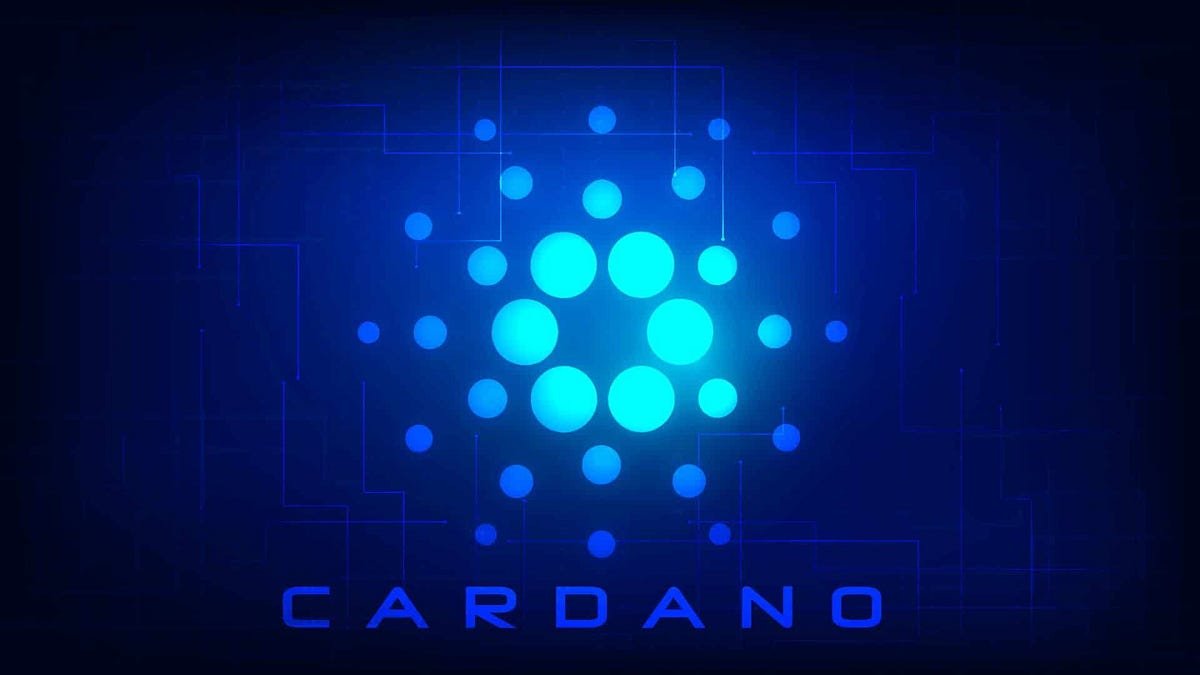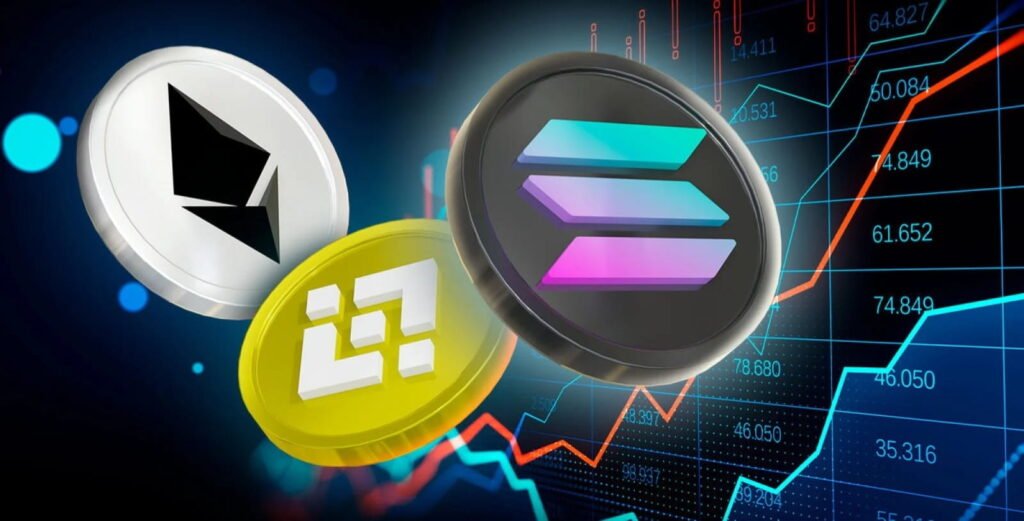The cryptocurrency landscape is witnessing unprecedented transformation as major altcoin upgrades 2025 are set to redefine blockchain technology. These groundbreaking improvements promise enhanced scalability, improved user experience, and revolutionary features that could reshape the entire digital asset ecosystem.
From Ethereum’s ambitious Pectra upgrade to Cardano’s innovative Hydra implementation, the year 2025 marks a pivotal moment for altcoin development. Understanding these upgrades is crucial for investors, developers, and crypto enthusiasts looking to position themselves advantageously in this rapidly evolving market.
Understanding the Significance of Altcoin Network Upgrades
Cryptocurrency network upgrades represent more than simple software updates—they’re fundamental improvements that enhance functionality, security, and user experience. These upgrades often take months or years to develop, requiring extensive testing and community consensus before implementation.
The importance of tracking these developments cannot be overstated. Network upgrades directly impact token value, ecosystem growth, and adoption rates. When a blockchain successfully implements significant improvements, it often attracts more developers, users, and institutional investment.
Major upgrades typically address critical limitations such as transaction throughput, energy efficiency, smart contract capabilities, and interoperability. The most successful upgrades solve real-world problems while maintaining network security and decentralization.
Ethereum’s Pectra Upgrade: The Game-Changing Update
Key Features of the Pectra Implementation
Ethereum’s Pectra upgrade, which went live on May 7, 2025, represents the network’s most significant improvement since the Merge. This comprehensive upgrade combines the Prague execution layer hard fork with the Electra consensus layer enhancement, delivering substantial improvements across multiple areas.
The upgrade introduces several Ethereum Improvement Proposals (EIPs) that fundamentally change how users interact with the network. EIP-7251 increases validator staking limits from 32 ETH to 2,048 ETH, while EIP-7002 enables flexible staking withdrawals. These changes make staking more accessible and efficient for large institutional players.
Account abstraction features through EIP-7702 allow traditional Ethereum accounts to function like smart contracts temporarily. This innovation simplifies user interactions and enables more sophisticated wallet functionalities without requiring users to understand complex technical details.
Impact on DeFi and Smart Contract Development
The Pectra upgrade significantly enhances Ethereum’s capabilities for decentralized finance applications. Improved gas efficiency mechanisms reduce transaction costs, making smaller DeFi transactions more economically viable. This development could democratize access to DeFi services for retail users previously priced out by high fees.
Smart contract developers benefit from enhanced execution capabilities and new programming primitives. The upgrade introduces more efficient opcodes and improved memory management, enabling developers to create more complex applications while maintaining reasonable gas costs.
The integration of Verkle Trees is one of the most anticipated features of the Pectra upgrade, as it reduces storage requirements and improves transaction processing efficiency. This optimization supports the growing demand for smart contracts and decentralized applications.
Cardano’s Hydra and Mithril Scaling Solutions Revolution

Hydra’s Layer-2 Scaling Innovation
Cardano’s Hydra and Mithril upgrades are already improving transaction throughput and network efficiency, with more enterprise-facing applications in the pipeline. Hydra represents Cardano’s ambitious approach to solving blockchain scalability challenges through state channels technology.
The Hydra protocol enables multiple parallel processing channels, theoretically allowing unlimited scalability as each head can process transactions independently. This architecture maintains Cardano’s security guarantees while dramatically increasing transaction throughput.
Early implementations demonstrate significant improvements in transaction speed and cost reduction. Hydra heads can process hundreds of transactions per second while settling final states on the main Cardano blockchain, combining speed with security.
Mithril’s Lightweight Client Innovation
Mithril introduces a revolutionary approach to blockchain verification through stake-based threshold signatures. This technology enables lightweight clients to verify blockchain states without downloading entire transaction histories, dramatically reducing synchronization time and storage requirements.
The implementation allows mobile applications and resource-constrained devices to interact with Cardano securely. This accessibility improvement could significantly expand Cardano’s user base, particularly in developing markets where high-end hardware is less common.
Enterprise applications particularly benefit from Mithril’s efficiency improvements. Organizations can integrate Cardano functionality without maintaining full node infrastructure, reducing operational complexity and costs.
Solana’s Continued Evolution: Performance and Reliability
Network Stability Improvements
Solana has focused extensively on addressing historical network reliability issues throughout 2025. Recent upgrades implement more robust consensus mechanisms and improved validator selection algorithms, significantly reducing network outages and transaction failures.
The network’s approach to handling congestion has evolved substantially. New priority fee mechanisms ensure critical transactions receive processing priority while maintaining fair access for all users. These improvements address previous criticisms about network reliability during high-traffic periods.
Enhanced monitoring and alerting systems provide better visibility into network health. Validators can proactively address potential issues before they impact user experience, contributing to overall network stability.
Ecosystem Development and Integration
Solana continues leading gains among Layer-1 tokens, with gaming and NFT tokens rebounding on renewed interest. The network’s focus on high-performance applications attracts developers building resource-intensive decentralized applications.
Recent partnerships with major technology companies demonstrate Solana’s growing enterprise adoption. These collaborations often involve custom blockchain solutions leveraging Solana’s high throughput capabilities for specific business applications.
The development of Solana-based infrastructure tools continues expanding. New developer frameworks, testing environments, and deployment tools lower barriers to entry for projects considering Solana as their blockchain platform.
Polkadot’s Parachain Auction Evolution
Enhanced Parachain Functionality
Polkadot’s parachain ecosystem continues maturing with improved auction mechanisms and enhanced interoperability features. Recent upgrades streamline the process for new projects to secure parachain slots, reducing barriers to entry while maintaining network security.
Cross-chain communication protocols have become more efficient and user-friendly. Projects can now leverage functionality from multiple parachains seamlessly, creating more sophisticated applications that weren’t possible on single-chain architectures.
The implementation of asynchronous backing significantly improves parachain block production efficiency. This technical improvement reduces block times and increases overall network throughput without compromising security guarantees.
Governance and Treasury Improvements
Polkadot’s governance system has evolved to handle the increasing complexity of managing multiple parachains. New voting mechanisms provide more nuanced decision-making capabilities while maintaining community participation.
Treasury management improvements enable more efficient allocation of resources to beneficial projects. Enhanced proposal evaluation processes help identify high-impact initiatives while reducing administrative overhead.
Alos Read: Crypto Investments in 2025 Bitcoin AI & Tokenization
Other Notable Altcoin Upgrades Shaping 2025
Avalanche’s Subnet Developments
Avalanche continues expanding its subnet architecture, enabling more specialized blockchain solutions. Recent improvements focus on interoperability between subnets and enhanced consensus mechanisms for specific use cases.
Chainlink’s CCIP Integration
Chainlink’s Cross-Chain Interoperability Protocol developments enhance cross-chain communication capabilities. These improvements facilitate more seamless interaction between different blockchain networks, supporting the multi-chain future of cryptocurrency.
Algorand’s Sustainability Initiatives
Algorand focuses on sustainability and enterprise-grade solutions, with recent upgrades emphasizing environmental responsibility and institutional adoption features.
Investment Implications of Major Altcoin Upgrades 2025
Market Impact Analysis
Network upgrades typically create significant market opportunities for informed investors. Successful implementations often lead to increased developer activity, user adoption, and institutional interest, potentially driving token price appreciation.
However, upgrades also carry risks. Technical issues during implementation can negatively impact token prices and user confidence. Investors should carefully evaluate upgrade timelines, technical complexity, and development team capabilities.
The most successful investments often involve projects with clear upgrade roadmaps, strong technical teams, and active community support. These factors increase the likelihood of successful implementation and long-term value creation.
Strategic Positioning Considerations
Diversification across multiple upgrading networks can help investors capture opportunities while managing risks. Each upgrade addresses different aspects of blockchain technology, creating various investment themes and opportunities.
Timing considerations are crucial for maximizing returns from upgrade-related investments. Historical data suggests optimal entry points often occur during development phases before mainstream awareness increases.
Technical Implementation Challenges and Solutions

Development Complexity Management
Major network upgrades require extensive coordination between multiple development teams, validators, and community stakeholders. Project teams must balance innovation with stability, ensuring new features don’t compromise existing functionality.
Testing procedures for major upgrades often involve multiple phases including testnets, public testing periods, and gradual rollouts. These processes help identify potential issues before they affect main network operations.
Community coordination becomes increasingly complex as networks grow. Upgrade proposals must undergo thorough review processes, incorporating feedback from diverse stakeholders including developers, validators, and users.
Security Considerations
Network upgrades introduce new attack vectors that malicious actors may attempt to exploit. Security audits become more critical and complex as upgrade scope increases, requiring specialized expertise and extensive testing.
Backward compatibility considerations ensure existing applications continue functioning after upgrades. Development teams must carefully balance innovation with ecosystem stability to maintain user confidence.
Emergency response procedures become crucial during upgrade implementations. Teams must prepare contingency plans for various scenarios, including potential rollback procedures if critical issues emerge.
Community and Developer Impact
Developer Experience Improvements
Recent upgrades consistently focus on improving developer experience through better tooling, documentation, and development frameworks. These improvements lower barriers to entry and enable more sophisticated application development.
Educational resources and developer support programs help maximize upgrade adoption. Successful projects invest heavily in developer education, ensuring the community can effectively utilize new features and capabilities.
User Experience Evolution
Network upgrades increasingly prioritize user experience improvements, making cryptocurrency more accessible to mainstream users. Simplified interfaces, reduced transaction costs, and improved reliability contribute to broader adoption.
Mobile and web application improvements enable users to access advanced blockchain features through familiar interfaces. This accessibility improvement is crucial for expanding cryptocurrency adoption beyond technical users.
Future Outlook and Emerging Trends
Interoperability Focus
The trend toward cross-chain functionality continues gaining momentum throughout 2025. Projects increasingly recognize that the future involves multiple interconnected blockchains rather than winner-take-all competition.
Standardization efforts help ensure compatibility between different networks and upgrade implementations. Industry collaboration on common standards benefits the entire ecosystem by reducing fragmentation.
Sustainability and Efficiency
Environmental considerations increasingly influence upgrade priorities. Projects focus on reducing energy consumption while maintaining security and decentralization, addressing regulatory and social concerns.
Efficiency improvements often provide competitive advantages in attracting enterprise adoption. Organizations increasingly consider environmental impact when selecting blockchain platforms for business applications.
Conclusion
The landscape of major altcoin upgrades 2025 represents a transformative period in blockchain technology evolution. From Ethereum’s groundbreaking Pectra implementation to Cardano’s innovative scaling solutions, these upgrades address fundamental limitations while introducing revolutionary capabilities.
Success in this evolving market requires staying informed about technical developments, understanding their implications, and positioning appropriately for long-term growth. The projects implementing the most impactful upgrades often attract increased developer activity, user adoption, and institutional investment.

